
OR
Parliamentarians cannot breach party discipline: PM Oli claims in his written response to Supreme Court
Published On: June 17, 2021 03:38 PM NPT By: Republica | @RepublicaNepal
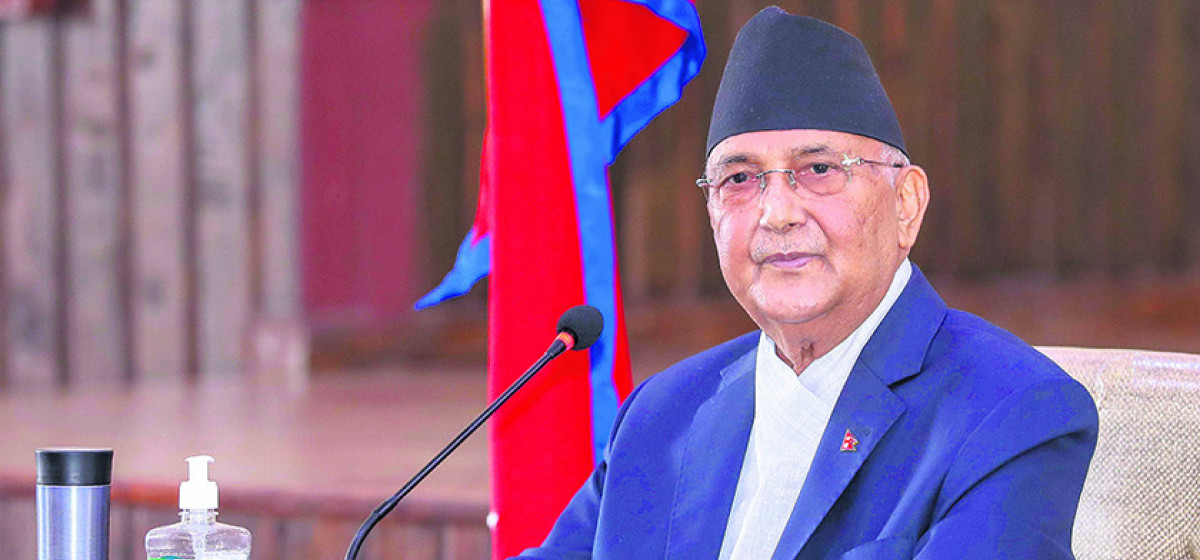
KATHMANDU, June 17: Prime MInister KP Sharma Oli has said that a member of the House of Representatives (HoR) can not extend their support to any member belonging to the opposition party as the Constitution of Nepal does not envision a partyless system.
Writing to the Supreme Court (SC) in response to its June 9 order, Prime Minister Oli argued that the members of parliament (MPs) can not go against party discipline. “One who is elected based on a party’s principles, ideology, policy and manifesto is not supposed to be independent to support the leader from another party in the course of new government formation,” he wrote, adding that the members of the ruling CPN-UML are not allowed to support Sher Bahadur Deuba as the new prime minister as per Article 76 (5) of the constitution.
In the written response, PM Oli has claimed that the act of nearly two dozen UML former members of the HoR cannot be deemed constitutional in a political system like ours which has adopted the parliamentary system.
Earlier, the apex court asked the defendants including Prime Minister Oli, the Office of President and the Office of Prime Minister and Council of Ministers (OPMCM) to submit a written response by June 22 regarding the dissolution of the lower House of parliament. Hearing on the writ petitions registered against the House dissolution, a five-member Constitutional Bench headed by Chief Justice Cholendra Shumsher JBR sought written responses from the defendants to justify the dissolution of the House for a second time.
In his response, Oli has claimed that the writ petitioners including Nepali Congress (NC) President Sher Bahadur Deuba have violated the limitations and principles of the multi-party parliamentary system and party discipline.
It is to be noted that as many as 149 members of the dissolved House signed the petition submitted by NC President Deuba to President Bidya Devi Bhandari, while staking his claim to a new government as per Article 76 (5) on May 21. PM Oli, who had stated that he could not win a confidence motion as per Article 76 (4) and asked the president to initiate further processes, also laid his claim to form a new government. After President Bhandari dismissed the claims of Oli and Deuba, the Oli-led Cabinet recommended to the President to dissolve the House. Acting upon the recommendation, President Bhandari dissolved the 275-member lower House on May 22 for a second time. A couple of days after the dissolution, 146 MPs of the dissolved House reached the Supreme Court and registered the writ petition at the Supreme Court, demanding the reinstatement of the House and appointment of Deuba as the new PM.
Defending the House dissolution move, PM Oli has argued that the court cannot appoint the prime minister as it is only supposed to interpret the constitution and laws. “Article 76 has authorized no one except the president to appoint the prime minister,”
He has also claimed that no alternative government can be formed through the existing equation in the dissolved parliament.
In his 19-point response, Oli has presented a number of arguments to justify the second episode of House dissolution.
The Constitutional Bench is scheduled to resume hearing on the writ petitions starting June 23.
Read the full response below:
You May Like This
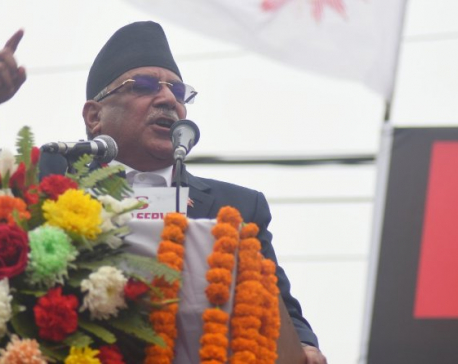
Millions will be forced to picket Singha Durbar and Baluwatar if PM Oli does not correct his mistakes: Dahal
KATHMANDU, Feb 10: In a veiled threat to use force to meet their demands, co-chairperson of the Dahal-Nepal faction of... Read More...
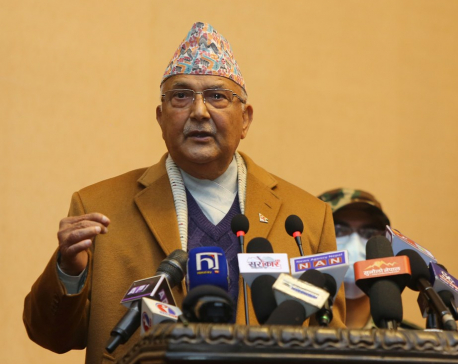
Those opposing House dissolution are against democracy, constitution: PM Oli
KATHMANDU, Jan 24: Prime Minister KP Sharma Oli has said that those opposing the dissolution of the House of Representatives... Read More...
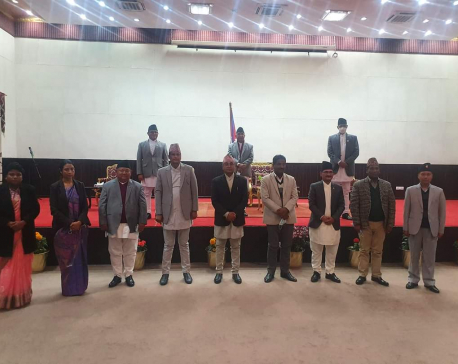
President Bhandari administers oath of office and secrecy to newly-appointed ministers
*Prime Minister Oli appoints eight new cabinet ministers, one state minister *The prime minister has also made a massive... Read More...



Just In
- Karnali Province Cabinet to get full shape today: CM Kandel
- Two arrested while trying to enter Nepal from India with fake Indian currency
- Nepal-India Chamber of Commerce & Industry unveils ‘Investing in Nepal’ handbook to catalyze Indian investment
- NUP’s Tika Thapa appointed as agriculture minister of Sudurpaschim
- CM Sodari of Sudurpaschim to seek vote of confidence on May 3
- Gold price remains stable at Rs 137,200 per tola
- Three arrested for calf slaughter in Bhaktapur
- Kathmandu tops chart of world’s most polluted cities



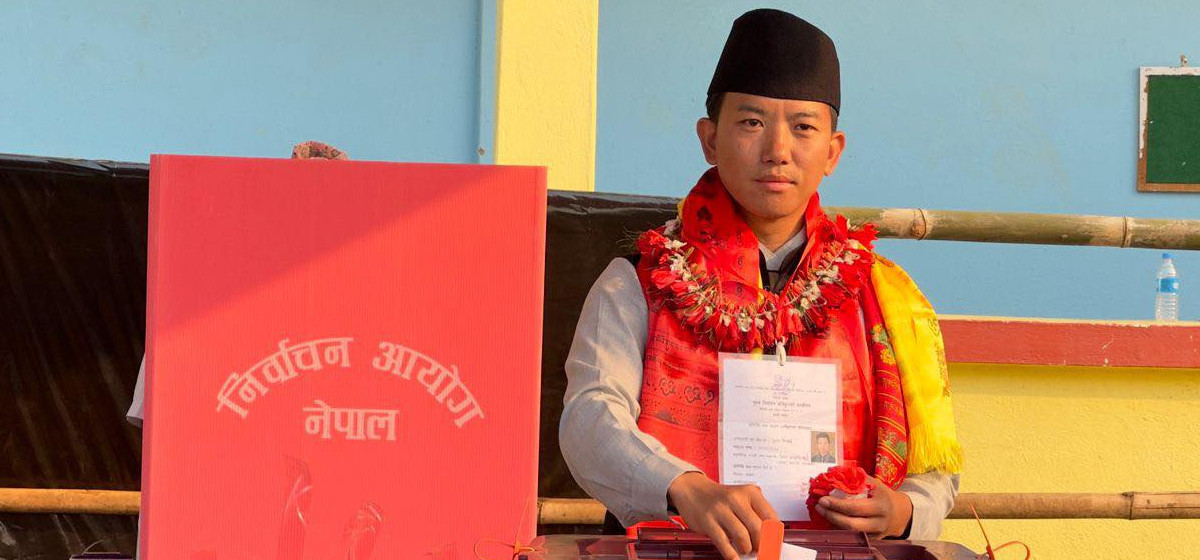
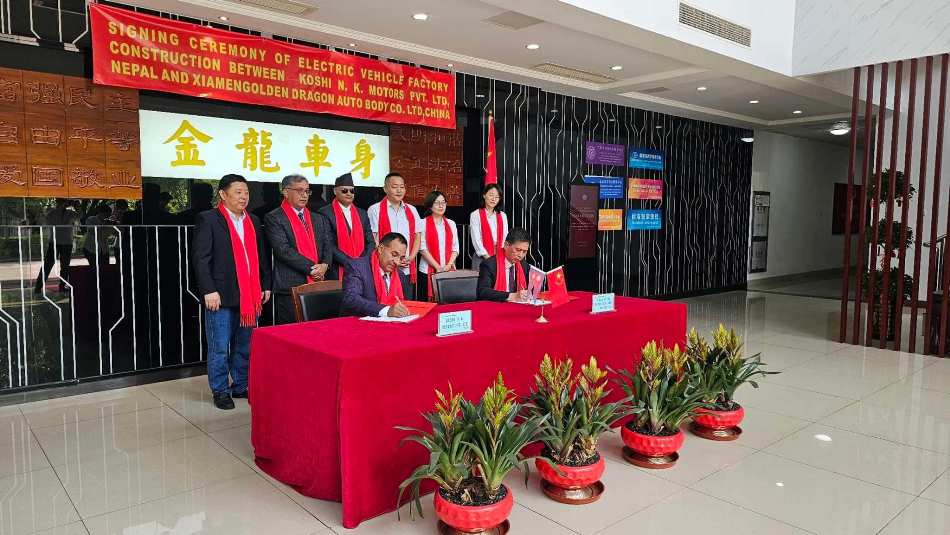
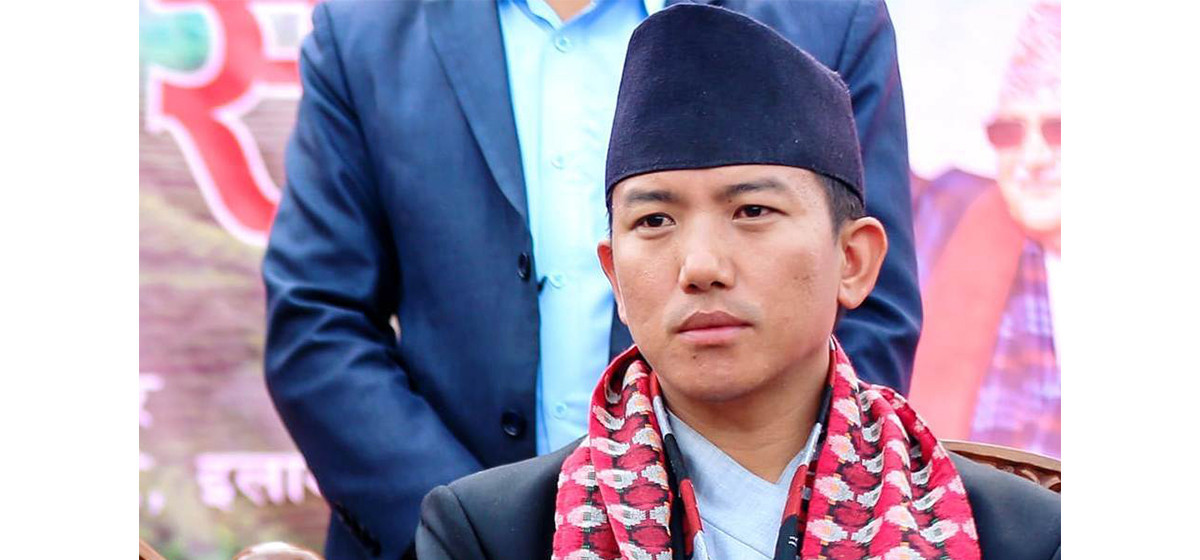

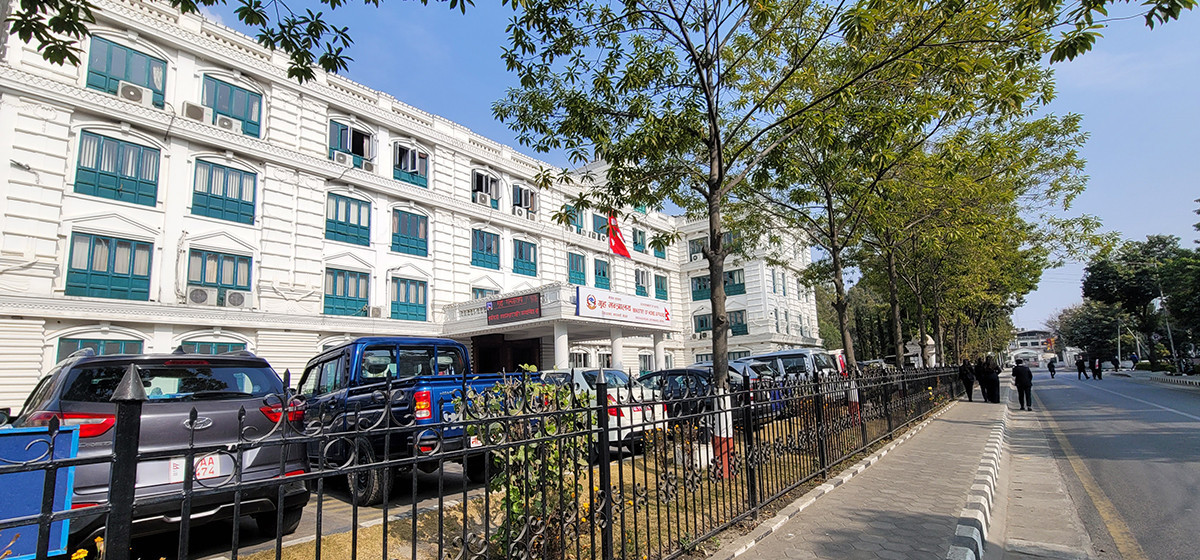
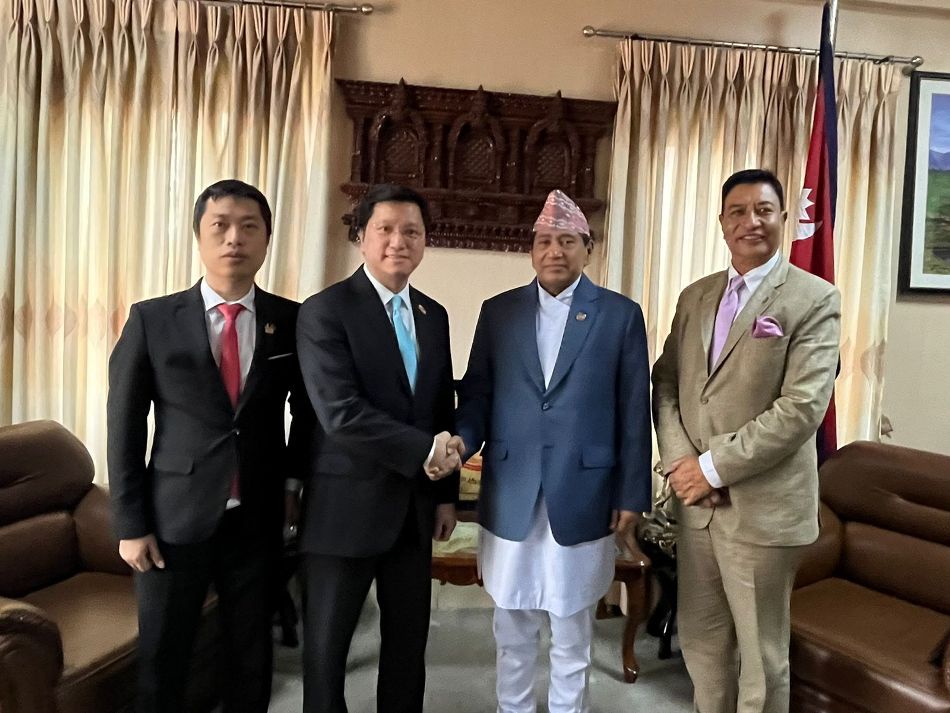
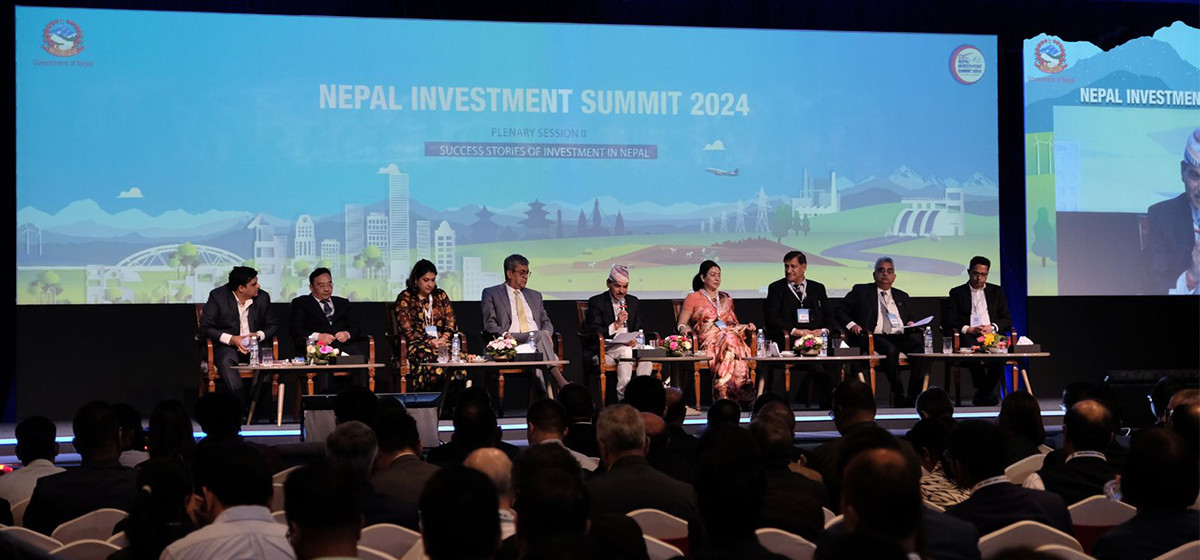

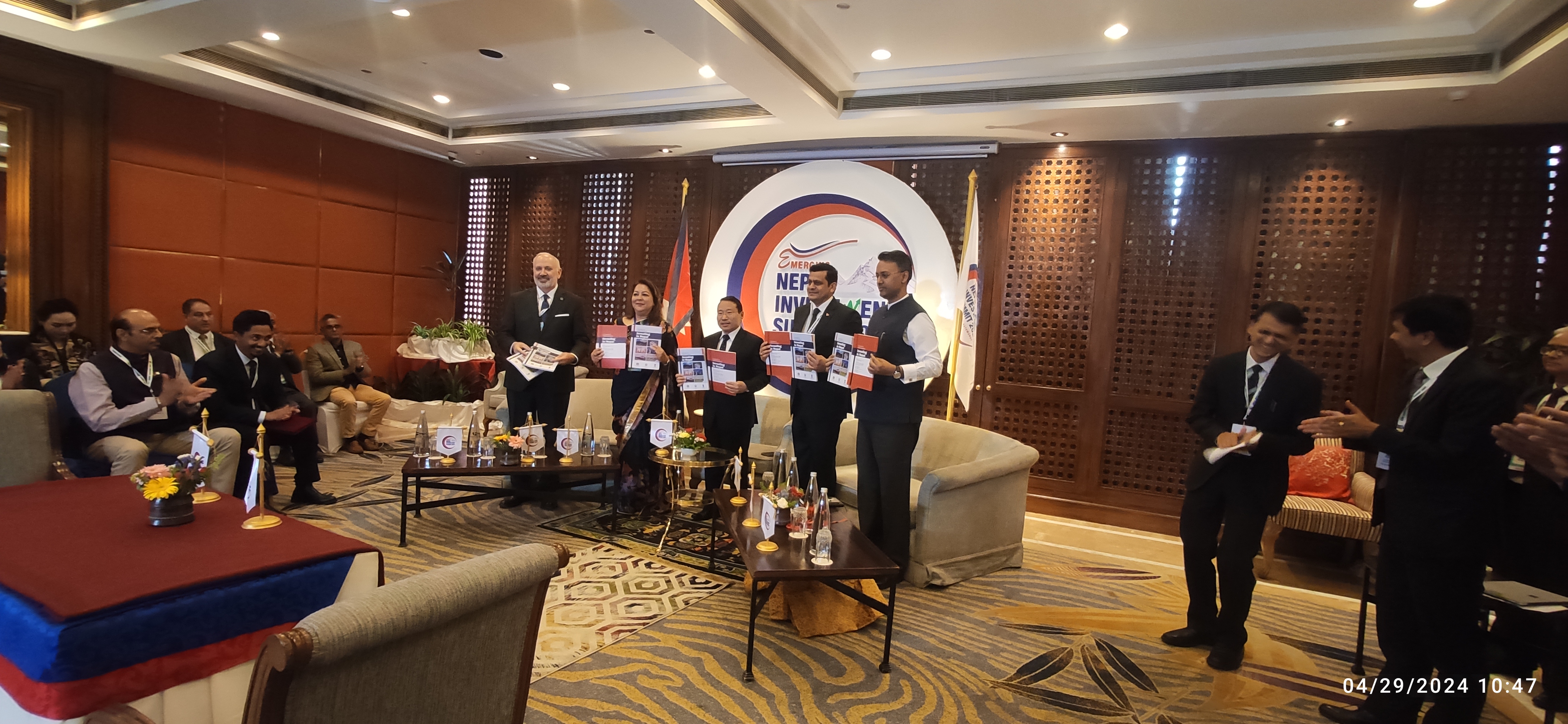
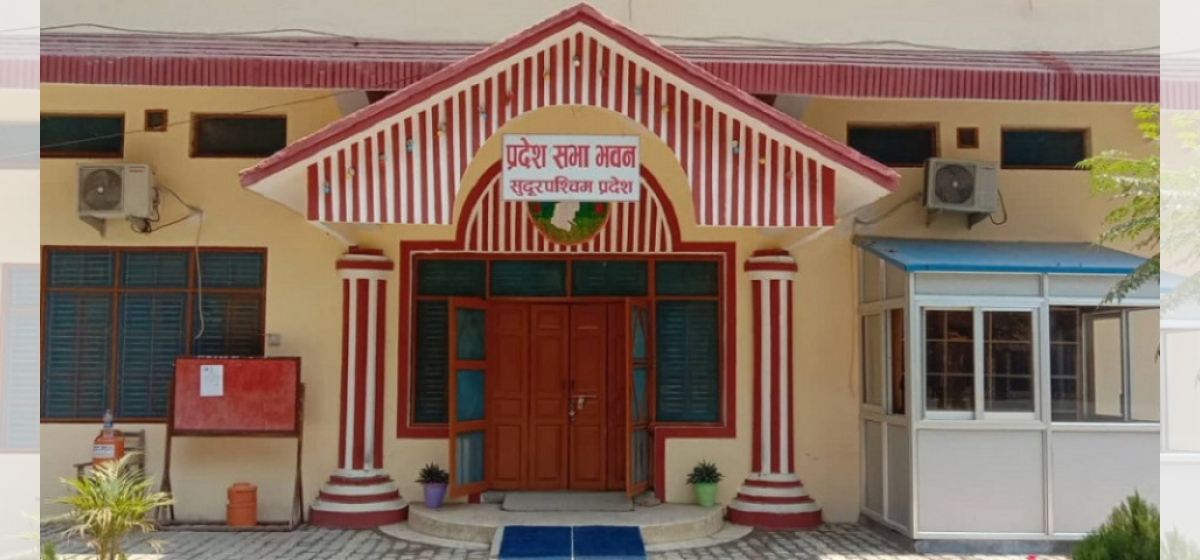
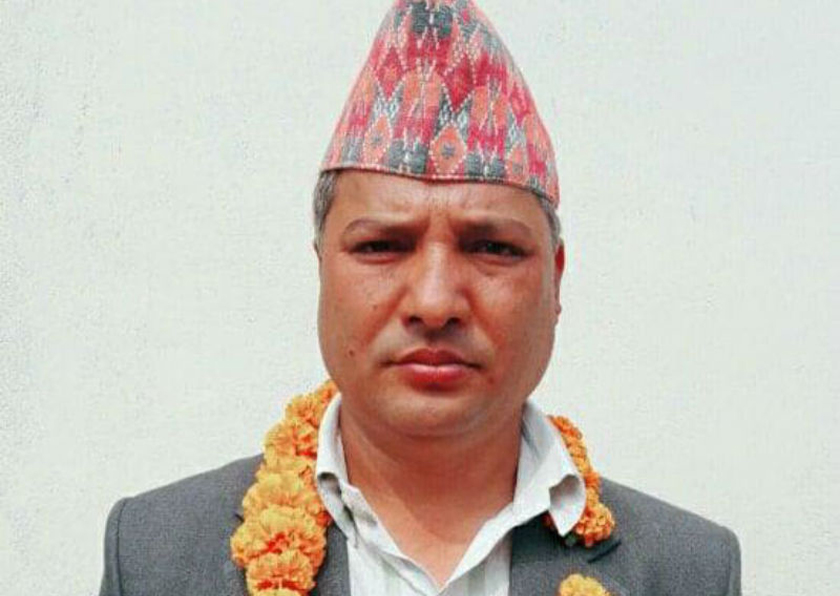

Leave A Comment